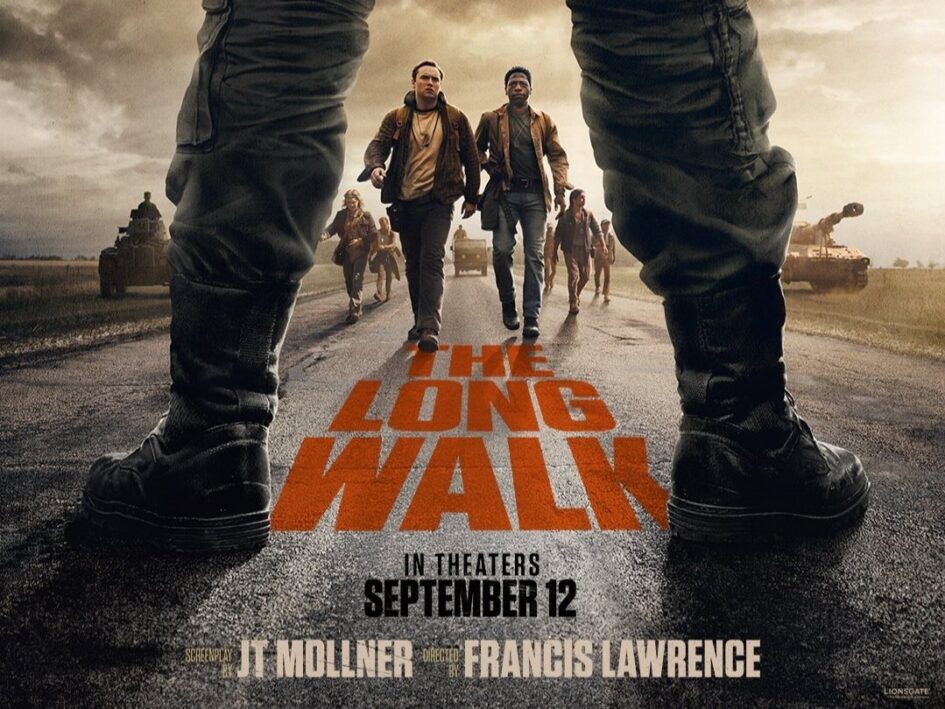For being one of the most successful authors of all time, Stephen King has had a surprisingly uneven track record when it comes to film adaptations. We’ve gotten classics like The Shawshank Redemption, The Shining, and even more recent works like IT (2017). But for every standout, there always seem to be two or three misfires that are quickly forgotten. The Long Walk is the latest King adaptation to make its way to the big screen, but does it finally break the slump?
The Long Walk is a pretty self-explanatory story. In a dystopian America, each of the 50 states sends a volunteer to compete in a walking contest. The rules are simple: keep walking without stopping, fame and fortune await the last boy left. But the simplicity of the premise is also where many of the film’s issues come from. The first act does a decent job of establishing the world and showing our characters’ motivations, but because the story is literally just the boys walking, much of this comes through exposition dumping. The characters themselves feel fairly stock at first, and while the movie tries to evolve those clichés as it goes on, most of those attempts are unremarkable. This results in a third act that feels predictable from the start, and overall just doesn’t work.
The second act delivers the best moments in the film, showing not just the physical strain of The Walk but also the heavy mental toll it takes on the competitors. Seeing each boy unravel in his own way leads to some of the tensest, most uncomfortable scenes in the movie, and maybe of the year. Yet, between all that intensity, there’s some genuinely beautiful character work, particularly in the relationship between the two leads, Ray Garraty (Cooper Hoffman) and Peter McVries (David Jonsson). The dialogue between them feels natural, and the chemistry the two actors bring to the screen makes it hard not to get invested in their story.
Cooper Hoffman gets a chance to show more range than he did in Licorice Pizza (2021), and for the most part, he succeeds with this darker tone. Still, there are moments where his performance doesn’t quite land and can pull you out of the scene. Part of this might be because he’s opposite David Jonsson, who is operating on another level entirely. After his breakout role as Andy in Alien: Romulus, audiences were begging for him to land a larger role. You could argue that nothing in this movie works without him, and I wouldn’t disagree. Jonsson carries the emotional weight of the story, delivering multiple monologues that had the audience reaching for tissues. He steals every scene he’s in, which is a lot considering the limited setting.
Not all the casting choices hit the heights Jonsson does. Head among the misfires is Mark Hamill as The Major, the overseer of The Long Walk. While the film aims for serious and darker tones, Hamill leans into an almost cartoonish villain that sticks out with the rest of the movie. The writing seems to suggest this was intentional, but it just doesn’t work. The whiplash between Hamill’s cheesy one-liners and the film’s brutal, body-horror-inspired death scenes is jarring.
The Long Walk does everything it can with its straightforward story, but there’s no escaping an ending the audience can see coming from the beginning. The character work carries much of the runtime, and thanks largely to David Jonsson’s standout performance, those sequences are engaging enough. In the end, compared to Stephen King’s recent adaptation, The Long Walk stands as one of the stronger entries, but beyond Jonsson’s performance, it doesn’t leave much to be remembered for.


